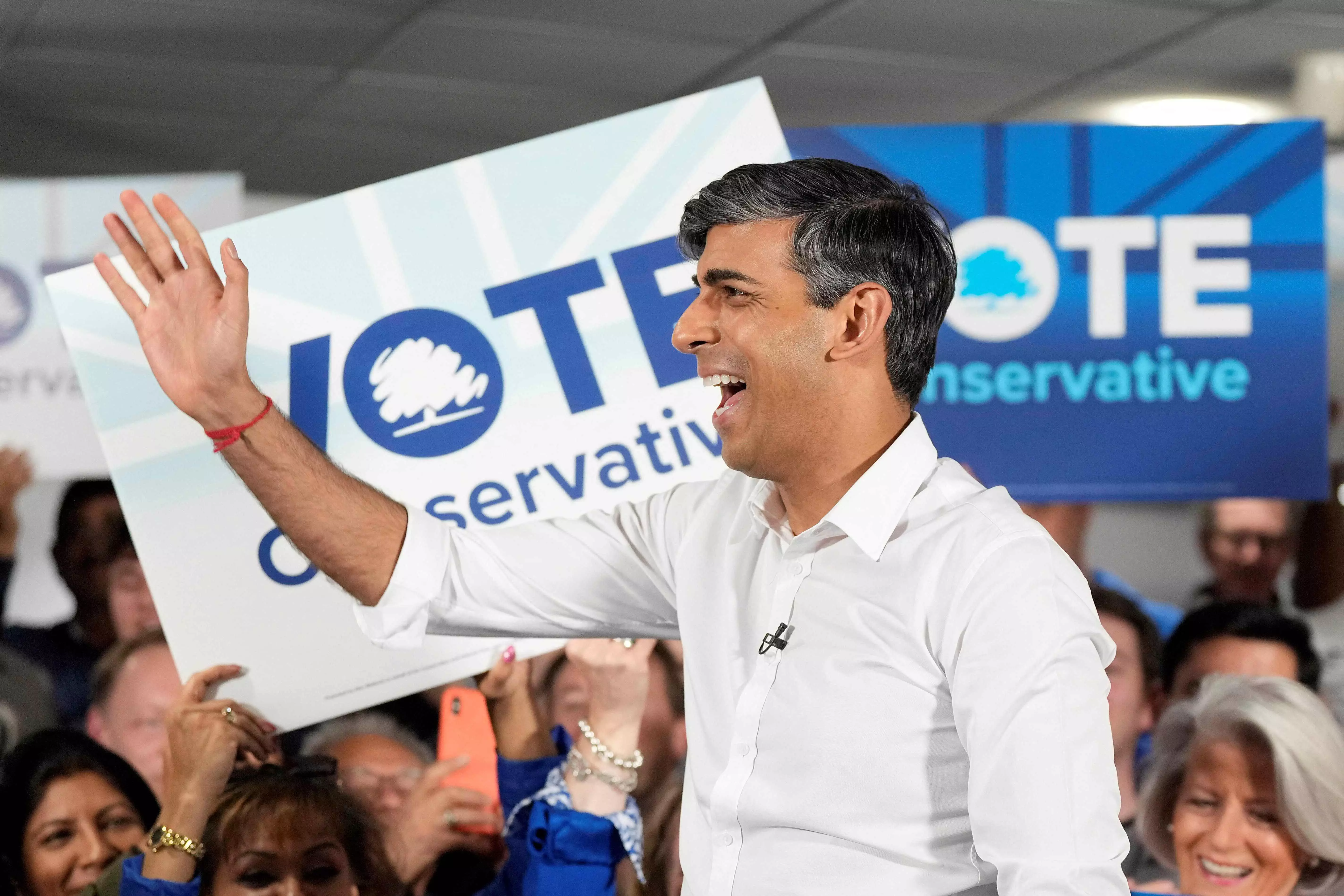Krishnan Srinivasan | Rishi Sunak’s call for snap July polls may be big gamble

British Prime Minister Rishi Sunak has brought forward the date of the general election from later in the year to July 4. The Conservatives had hoped they would be closing the popularity gap by now, and some genuinely believe that Mr Sunak may yet be his party’s saviour, stressing that he inherited an appalling legacy. After the meltdown of the previous administrations of Liz Truss and Boris Johnson, Mr Sunak formed a government, kept the markets happy, and worked out a solution of sorts with the European Union on Northern Ireland.
Compared to the situation in autumn 2022, that was no mean feat. Mr Sunak treated his government from the start as a coalition and introduced some stability. In his previous capacity as chancellor of the exchequer, he took personal and painstaking care, and his workmanship style made him popular in every part of the country. As Prime Minister, he has shown little ego and made politics more “normal” again. He was once more popular then than his party and its hope was that he could pull the party’s ratings up to his own level. But that has not happened. He has not been able to make the Conservative Party more popular, and it trails in the opinion polls, with the Conservatives at 20 per cent against the Opposition Labour Party’s 42 per cent.
Last year Mr Sunak announced five pledges: he vowed to halve inflation, grow the economy, reduce the national debt, cut health service waiting lists and stop the Channel crossing of small boats containing illegal immigrants. This shopping list of pledges that was never going to excite or persuade. His thinking was to show himself as an unflashy politician who would calmly make vows and keep them. He would under-promise and over-deliver, in a typical concoction of political and management speak. Only inflation, now at 2.3 per cent, has been implemented. Mr Sunak came to power amid a collapse in confidence in the government’s economic policy, and he can rightly claim he has restored a modicum of economic stability, but on a range of issues, such as plans to deport asylum seekers to Rwanda, attempts to cut the unacceptably long waiting lists for health treatment, and targets to clean up sewage-polluted water supplies, the government has fallen short of its declared goals.
It is difficult to see how the Conservatives can claw back any lead in the next six weeks. Mr Sunak’s problem seems to be that while successful politicians have strong beliefs, his approach was managerial; to address a series of problems to be solved, including banning smoking, long-term reform of higher school education and scrapping a proposed high-speed railway line. This rebranding has failed to convince, and a government of civil servants did not inspire. He thought working hard and showing good intentions was enough, but as one former colleague said, politics at the top is an art, “and he is no artist”.
One of Mr Sunak’s core beliefs is said to be that politics is like the stock market — “believe in the fundamentals, not the noise” — probably a reflection of his past as a hedge fund manager. What started out as his advantage now seems like a negative. After 14 years in power, the Conservative Party had descended into faction fighting and morale has collapsed. The Conservative Party is turbulent and full of grudges; his immediate predecessor Liz Truss wanted him embarrassed, and her predecessor Boris Johnson’s many supporters blamed him for unseating their hero. More than 60 members of his party are unwilling to stand again for parliament. No one felt Mr Sunak was a real leader, having been voted in as PM only by members of the House of Commons and not the Tory membership. The general impression was that he became PM by default, because no one else in his party wanted the job. Another problem was his great personal family wealth: in the British national context, that is unhelpful.
Defections in British politics are rare, but two Conservative MPs have recently switched sides to Labour. By holding an early election, Mr Sunak has arrested the attrition among his own party members. He seeks to present himself as a statesman who could safeguard Britain’s interests in a dangerous world, citing the Ukraine war, the instability in West Asia and China’s alleged attempts to destabilise democratic countries.
Inflation figures show the rate is at its lowest in almost three years but this is not unexpected, and is not yet at the central bank’s target which means an interest rate cut during the campaign is less likely. Mr Sunak thinks that by calling an early election he has managed the economic turnaround to convince the electorate, and that the triple shock of Covid-19, high energy prices and the Ukraine war is beginning to fade. But Labour under Sir Keir Starmer says some blame for high prices and mortgage rates lies with the Sunak government itself, and that families do not in practice notice any improvement in their economic situation because while growth is distinctly modest, wages are increasing more rapidly than prices.
Labour leader Keir Starmer is a serious, cautious, consensus-minded lawyer. After predecessor Jeremy Corbyn’s brief dalliance with hard-line socialism, he has brought Labour back into the political mainstream. He is far from charismatic, but for those who remember Boris Johnson’s antics, that is perhaps a qualification. A Labour government would not mean any fundamental change in Britain’s foreign policy. It is somewhat more internationalist than the Conservatives and open to closer cooperation with the European Union. But the campaign’s main issues will be about economic and tax policy, and how to fund the National Health Service.

